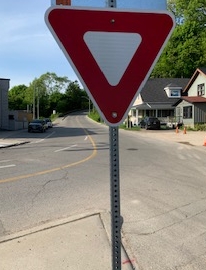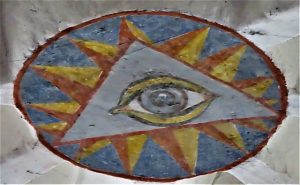On Father’s Day we remember each one
Of our loving fathers; well knowing
That all the work that they have done
Was so important for our growing.
It is an awesome responsibility to protect and guide young lives, to help create the solid nurturing home that becomes a lifetime foundation. Children watch parents during formative years, when memories lay their most enduring tracks. Teachable moments are generally not rehearsed ones.
Since it’s Father’s Day this Sunday, it seems fitting to pause and reflect a little about fathers. It’s not only about the fathers who parented us, but also the ones who parented our children, and who are now parenting our grandchildren.
For my Dad, fathering meant coaching a novice bike-rider in a Dominion grocery store parking lot after hours. It meant sweating at the back of an auditorium as I participated in a public speaking contest at school. It meant allaying our fears and somehow making each one of us feel unique. We used to love Sundays, because that day Dad had some free time to spend with us. The Sabbath made it possible to slow the pace, to appreciate family and nature during afternoon walks or drives.
My father was not much of a detail man, but he generally could charm people into buying into his dreams with their sweat equity. He had a knack for making people feel good about helping him. As a side benefit, his family learned a healthy wariness of being wheedled into grand schemes.
As he grew older, my father’s generally positive outlook on life began to fray a little. Troubles, big and small, got tiresome after a while. After undergoing neck surgery when he was in his 80s, his mobility was limited. He needed physiotherapy, but it was difficult for him to connect incremental effort to the big picture. Given a small jigsaw puzzle to hep improve his manual dexterity, he jokingly felt that this was a “waste of my valuable time.”
I also so much appreciate the fathering and quiet support my husband provided for our family. The gardens in which he loves to work produce beautiful blooms around our home. He has a can-do attitude that is willing to work out challenges. He is the reliable companion who attended countless church services, every family visit or event, who could always be counted on to chauffeur. His calm and steady driving generally set a good example. All three of our children got their driver’s license on their first attempts (more than we can say for ourselves).
Dads often get traditional gifts for their special days. Things like ties, which accumulate over time. So, I thought I’d take a photo of his personal collection, 24 ties in all. The gift of a tie, of course, could never convey enough gratitude: children know when they are loved, and love is given in return.
And to our son and son-in-laws, still in the middle of parenting young children, I wish them strength and kindness and perseverance as they lovingly raise the ones entrusted to them.
Blest be the tie that binds – 24 hours a day.




